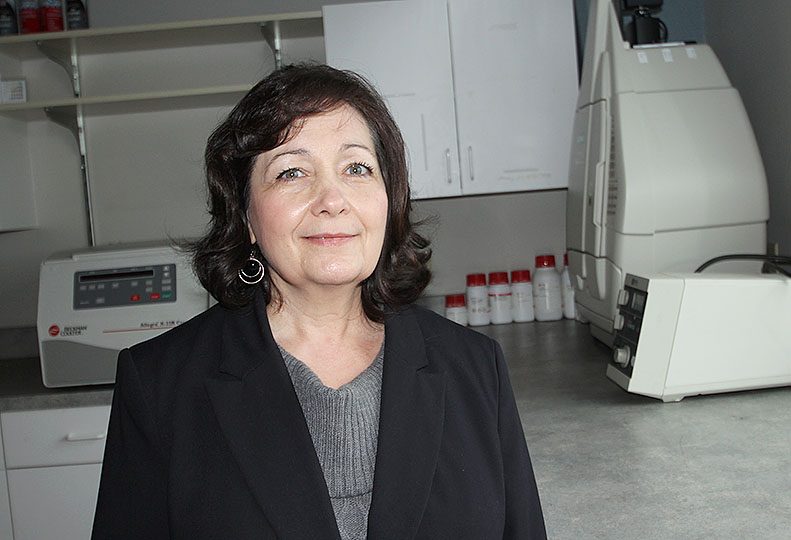
Home » Bioscience device maker Dahl Natural moves to Spokane
Bioscience device maker Dahl Natural moves to Spokane
HSSA funds provide boost for company from Oregon; Novion also receives award

December 19, 2013
A bioscience company that is developing a pesticide monitoring device has moved its headquarters to Spokane from Corvallis, Ore., after being awarded a nearly $500,000 grant from the Health Sciences & Services Authority of Spokane County.
Dahl Natural LLC has leased 2,800 square feet of space at 44 W. Sixth, where it initially will employ at least eight people. The company is researching and developing an automated electrochemical monitoring device that it says will enable fast, low-cost field testing to monitor or detect pesticides in food or water.
Separately, HSSA also awarded two grants totaling just over $381,000 to Spokane-based Novion Technologies Inc., formerly named Iasis Molecular Sciences LLC, which is developing antimicrobial biomaterials and medical devices for wound healing and infection control.
One of the Novion grants will support research to formulate and process a new family of antimicrobial agents into ointment and gel forms. The other HSSA award will support the company developing a new product to treat cardiovascular disease by creating synthetic, small-diameter vascular grafts.
Novion employs seven people in its research laboratory in the Innovate Washington building at 665 N. Riverpoint.
Meanwhile, four employees at Dahl Natural moved here from Oregon, and the company just hired three people in Spokane, says Anne Schwartz, the company’s president and primary owner.
“We’re in the hiring process right now for one to two more positions,” Schwartz says.
Dahl Natural also has received nearly $1 million in federal grants toward its bioscience device work, she says.
Schwartz says after further research and testing, the company will manufacture its device in Spokane. Schwartz adds that Dahl Natural already is working with Servatron Inc., a Spokane Valley-based electronics manufacturer, to do some early manufacturing for the instrument.
“We will do final assembly of the product ourselves,” Schwartz says.
She adds, “We hope to have a beta prototype out by May of 2014, as far as the devices being tested with customers. I can’t say how long it will take to get to commercialization until we do that beta testing, but hopefully within two to three years we should have a strong presence in the market.”
The company plans to develop the product as a hand-held device that will have a low-cost disposable sensor, she adds. The device also will incorporate technology to transfer measurements electronically to a database.
Schwartz says the company, which she founded in 2007, will target the product for use by food-processing businesses and water utilities, among others.
“We think it has a very broad market, a lot of potential users,” she adds. “What we hope is it will help our Washington state food processors be able to comply with new regulations such as by the European Union regarding the amount of pesticides that can be in a product. Hopefully, the device will help them compete in the export market.”
She adds, “We’re also targeting it for increased food safety.”
HSSA has worked with Greater Spokane Incorporated to draw bioscience companies to the area. A category of HSSA grants available to such startup companies doing innovative research requires their location be in Spokane County, says Susan Ashe, HSSA’s executive director and its only employee.
Schwartz says that in addition to support from HSSA and GSI, another draw for the company was potential collaboration with researchers from Washington State University, Gonzaga University, and Eastern Washington University.
Schwartz recently began collaborating on a separate research project with Dr. Mike Gibson, head of the clinical pharmacology department at the WSU Spokane College of Pharmacy.
Schwartz and Gibson have submitted a federal grant proposal to fund research for potentially another application of Dahl Natural’s monitoring device. The research would evaluate a way to monitor in the blood a metabolic genetic disorder called phenylketonuria (PKU), a condition that can lead to intellectual disability, seizures, and other medical problems.
“The resources that HSSA and other people in Washington and the Spokane area are putting together for collaborative work really facilitate new businesses and makes it really kind of a one-stop shop,” Schwartz says. “We feel Spokane has a lot talent for collaborative work in biotech and engineering.”
Ashe, who works from an office in the McKinstry Innovation Center at 850 E. Spokane Falls Blvd., says Dahl Natural is the first out-of state company recruited to Spokane after qualifying to receive the HSSA funding.
“Dahl Natural is engaged in the very research that HSSA was engaged to help grow for the life sciences industry here in Spokane,” Ashe says. “We’re very excited that they’re coming Spokane, and we look forward to them commercializing their device here.”
Ashe says Schwartz visited Spokane this past spring along with representatives of three other bioscience companies that toured the area to consider relocating operations here. The visit was a joint recruitment effort by HSSA and GSI.
Since being organized in 2009, HSSA has awarded $5.6 million in grants here, a large portion of which it provided in grants to support Spokane-based university research in the health sciences. It provides some funds to community health programs as well, Ashe says.
This month, HSSA also awarded a nearly $2 million grant to WSU’s College of Pharmacy to build its laboratory infrastructure and support the recent recruitment of three researchers at the pharmaceutical and biomedical sciences building on the Riverpoint Campus.
Latest News Technology
Related Articles
Related Products




![Brad head shot[1] web](https://www.spokanejournal.com/ext/resources/2025/03/10/thumb/Brad-Head-Shot[1]_web.jpg?1741642753)